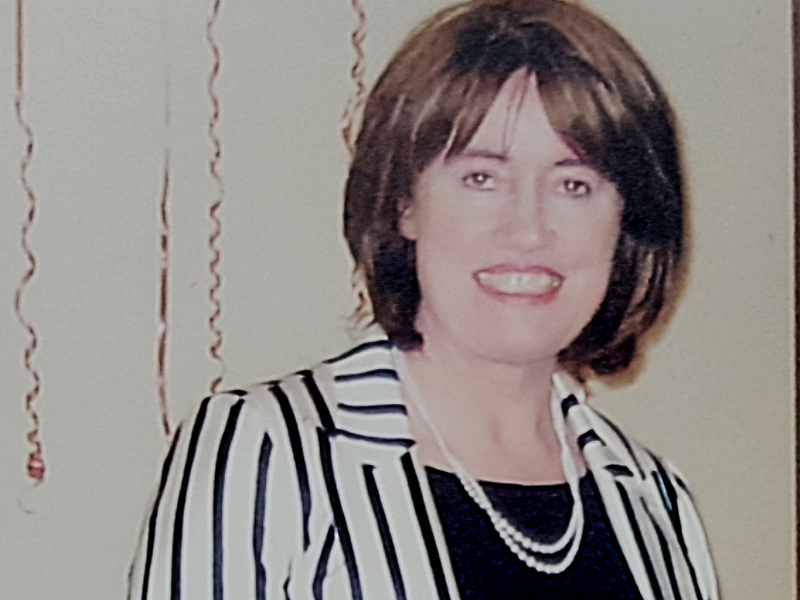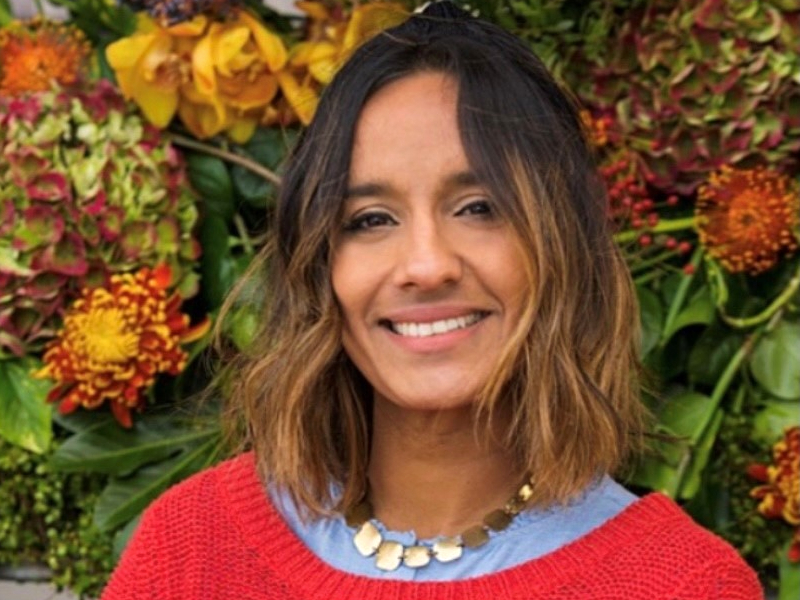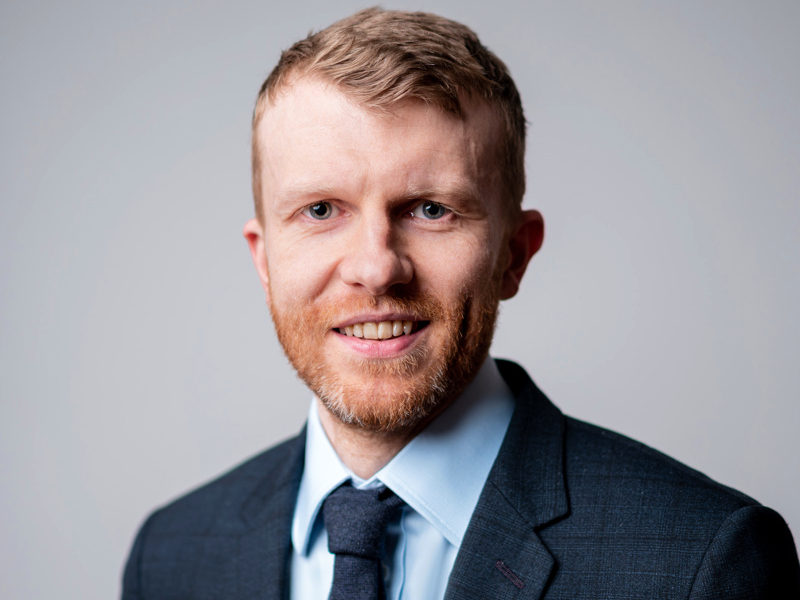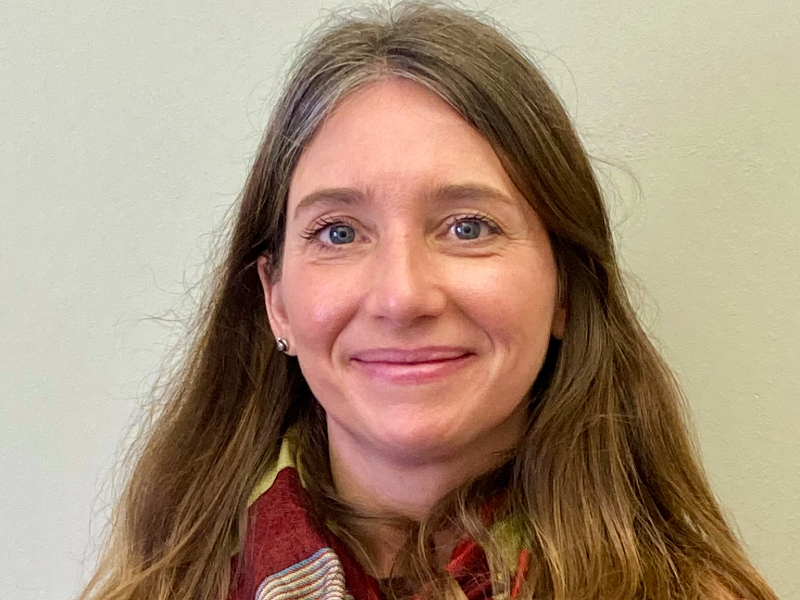Dying is a fact of life. It happens to all of us. Yet, we often shy away from talking about it.
Experts, however, believe we need to start talking more openly about dying to ensure that we die in the best possible place.
Dying Matters Awareness Week is an important annual event that raises awareness about dying. Taking place from 10-16 May this year, it’s an opportunity for people to start talking about what would matter to them most when the time comes, and to explore options and start thinking ahead about how they would like to die. The first thing to realise is: this looks different for everyone – and it needn’t be morbid.
We spoke to experts around The London Clinic about why it matters to talk about dying and how we can ensure we are in a good place to die.
Carmel Gordon, Critical Care and Outreach Nurse Consultant

As an outreach nurse, the number one question we ask is: “what’s in the best interest of the patient?” It’s our responsibility to talk openly and honestly with patients who are nearing or are at the end of their life, and to understand their wishes.
We can certainly treat symptoms, we can take patients to intensive care, but ultimately it’s about finding out what the patient wants – and sometimes that might just be to be comfortable. Our multi-disciplinary team is here to give each of our patients that personalised support.
I’ve worked at The London Clinic for 30 years, and I’ve been a nurse for longer still. My work has taken me all over, including to the Middle East. It’s incredible how dying is treated so differently between cultures.
Above all, dying shouldn’t be a taboo subject. Nobody lives forever and we must get better at talking about dying. Only then will we ensure our affairs are in order and our wishes are understood.
I’ve been privileged to have witnessed some incredibly beautiful, moving deaths. If we understand what the patient wants and we’re proactive, we can achieve anything! We’ve held a child’s first communion by a family member’s bedside. We’ve organised weddings in our oncology unit.
On one occasion, I was given the morning to source a wedding cake. I ran to our local Waitrose and, even at such short notice, the staff prepared the prettiest icing. People will really come together to ensure your wishes are met if they know them.
What we have to remember is that people who are dying are still living. Laugh with them, talk with them. Regardless of how scared you might be, they need you there.
Scarlett Nash, Palliative and End of Life Care Facilitator

I’ve spent over a decade working with hospices, hospitals and the community to address “the elephant in the room”. What often comes as a surprise to people, particularly later in their grief, is that their journey feels a lot easier when they are able to speak openly and truthfully to their loved ones who are dying.
When we refrain from talking about dying and we aren’t prepared, all our choices and the admin that comes with them, like financial affairs and funerals, are left to our loved ones.
The kindest thing you can do for your loved ones is to help them prepare for your death – and it doesn’t need to be all doom and gloom! You can have a laugh with them, break the ice. Why not use the next roast dinner to understand what your parents or best friends would want when their time comes?
We’re exceptional about talking about birth, the due date, the parents’ birth wishes. So why don’t we apply the same effort in making our wishes and preferences known in death? We should be celebrating each person’s life when they leave this world and give people an exit that’s aligned with what they would want.
For some, this will be in the writing of their wills combined with an advanced care directive and advanced care plan (effectively documenting your medical treatment and wishes). For others, this may be as simple as ensuring their favourite song is played at their funeral or the type of burial they would prefer.
People often don’t like thinking about dying, which I can empathise with massively! Life, after all, is about living.
However, modern medicine, no matter how advanced, can only help so much. Eventually, Mother Nature will have her way, so it is equally important to remain realistic and practical.
Many deaths I have supported have either been gradual or very sudden. Although what we die from remains out of our control, I have witnessed the most moving and ceremonious deaths, which were driven by the patients’ calm and measured attitude towards dying, and how engaged they were in their discussions.
Many families I have supported after their loved ones have died remain eternally grateful that they were accepting of their fate and, in turn, this helped their grieving process hugely.
From nursing the dying for so many years, I have recognised that there is such a thing as a “good death”. And so, I’d like to leave you with the words of Kimberley St John (age 32), a Palliative Care Nurse and best friend who died suddenly in July 2020: “None of us know how much time we have left. Use it wisely.”
Adrian Stones, Head of HR

Working for a hospital has really reshaped how I feel about dying. Prior to The London Clinic, I probably wouldn’t have given it much thought. Now, I recognise that everybody is going to die one day. Wouldn’t you want your death to be a good one?
I’ve been at The London Clinic for nearly six years. My role is to support our staff and direct the administrative side of our organisation. However, I am often required to be a witness for patients who are writing their wills. This can be emotional and challenging sometimes, but I’ve met some wonderful people and families through it. It’s a privilege, even just momentarily, to be there.
The important thing is that people have the agency to make these kinds of decisions; that they make them before they’re unable to. Supporting patients through this practical process has made me realise that I don’t want to wait until I’m in a hospital.
I’m already thinking about my living will and what I want to happen when I die. I’m planning on visiting a woodland cemetery soon that might end up being where my ashes are scattered. But it doesn’t need to be morbid. Why not make a day of it?
The more we talk about dying, the less painful it becomes. People sometimes like to avoid talking about it because it’s emotional – but those emotions exist and you’ll have to confront them one day.
What’s more, in encouraging your family to engage with your wishes about how you die, you’re helping them too. Educate yourself about what the options are. That’s going to put everyone in the best possible position.
I’ve always loved wine collecting and when my time comes I’d like to spend my final days enjoying it – anything leftover, people can have it my funeral. I wouldn’t like lots of palaver. A low-cost funeral with some really pretty flowers. When it’s my time, it’s my time.
Rachel Caesar, Psychological Therapist

In my role as a Psychological Therapist, the subject of mortality comes up often, as well as grief, loss and sometimes regret. It’s my role to listen and guide clients so that they can talk and explore these feelings openly and freely if they arise during a session. Clients are referred to me at The London Clinic, most often by clinical nurses, and I’ll arrange sessions with the patients to offer them support.
When I think about dying, it wouldn’t make sense to me to avoid talking about it. It’s part of all of our lived experience. In fact, talking about dying feels healthy. We can understand our own and each other’s wishes: how and where we want to die, even our plans for after death. Talking is about learning. I understand why it’s hard for people to talk about it.
As with any taboo subject, there’s a certain societal ugliness about dying which means people don’t feel they’re able to bring it up. I’m pleased when people can talk about things that are troubling them during sessions.
Unfortunately, not everyone is comfortable having conversations about dying, whether patients or even healthcare workers themselves. The Palliative Care team at The London Clinic are incredible in that they understand the emotional, spiritual and individual side of dying, rather than just the medical side, the need to cure. Their work is so valuable and complements my role as a therapist to ensure people get the best support.
I’d like for people to understand that talking about dying can be hugely helpful, whether you’re at your end of life or not. After all, death is not the opposite of life, but part of it.